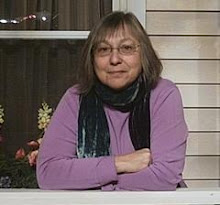 Winston Churchill’s Brooklyn roots
Winston Churchill’s Brooklyn rootsWinston Churchill's mother, Jennie Jerome, was an American born in a simple brownstone in the Cobble Hill section of Brooklyn in 1854. Leonard Jerome, her father, was a financier and an avid horse racer. He built a race track in the Bronx and one of the main Bronx arteries, Jerome Avenue, bears his name. Jenny and her sisters were taken abroad where she met Lord Randolph Spencer-Churchill when the family was on holiday on the Isle of Wight. They were engaged three days later, which caused some controversy, as did Winston's birth some seven months after their marriage.
One birth, two houses

In 1953 Winston Churchill paid a visit to Cobble Hill to see the home where his mother was born. But did he see it? There are two houses claiming to be
 the birthplace of Jenny Jerome. Sir Winston visited 426 Henry Street, a plain brick brownstone building that displays a plaque claiming this distinction. However, the historian Francis Morrone and The New York Times state that the birthplace was at 197 Amity Street. Alas, it bears no plaque. But Sir Winston may have been misinformed. What is notable is his regard for his mother that motivated this visit to Cobble Hill.
the birthplace of Jenny Jerome. Sir Winston visited 426 Henry Street, a plain brick brownstone building that displays a plaque claiming this distinction. However, the historian Francis Morrone and The New York Times state that the birthplace was at 197 Amity Street. Alas, it bears no plaque. But Sir Winston may have been misinformed. What is notable is his regard for his mother that motivated this visit to Cobble Hill.Who was this short-hair beauty?
Pictures of Jenny Jerome show a shockingly beautiful woman with short dark hair, the darkness attributed by some to Native American blood on her mother's side. By all accounts she was a woman of great energy and determination, with a fine wit, strong opinions and zest for life. She is quoted as saying that "We owe something to extravagance, for thrift and adventure seldom go hand in hand." And extravagant she was, in her behavior most notably. After the death of her husband, Lord Randolph, she had several liaisons and two marriages, both with men who were twenty years her junior. Reportedly among her lovers were King Edward VII of England and King Milan of Serbia.
Her influence on her son, Winston, is of importance. She is thought to have advised him to enter politics and to have been there to lend an ear and helping hand throughout his career. She believed in having a purpose in life and in hard work. In her era, it was the men who had the careers, and her advice to the young men she loved and befriended was that, "…for a man life means work, and hard work if you mean to succeed." Happily for history, her son Winston Churchill both heard and heeded this advice.




No comments:
Post a Comment